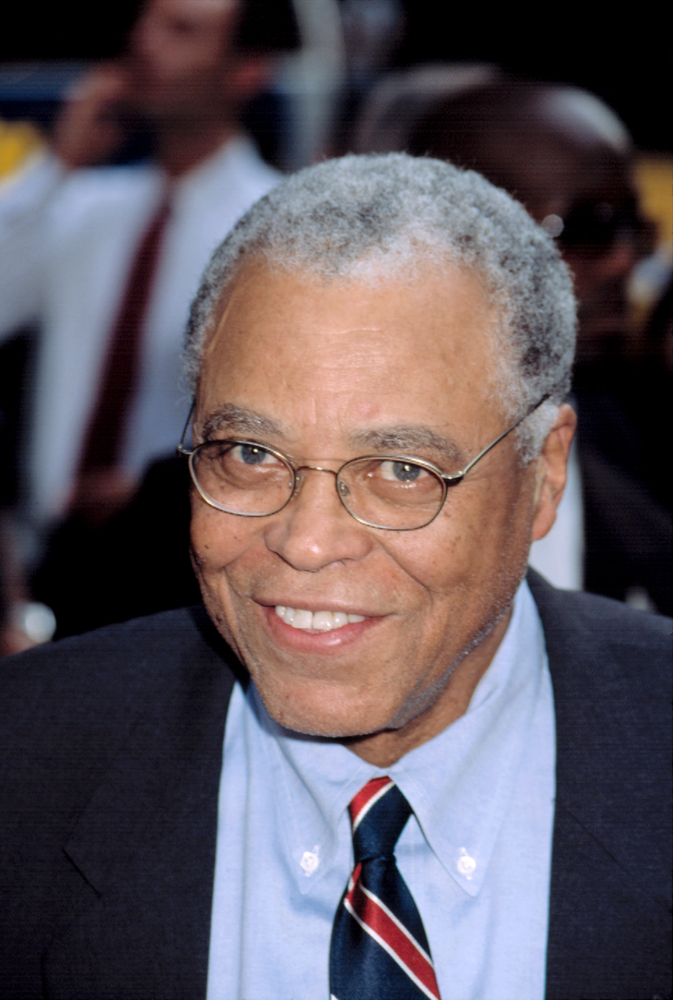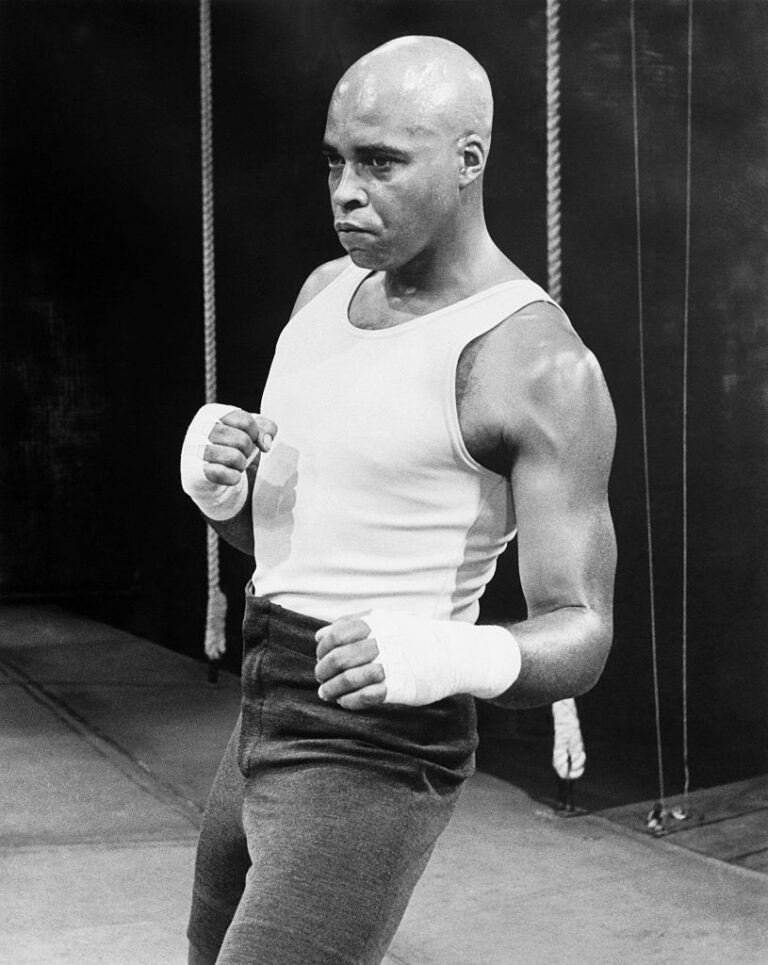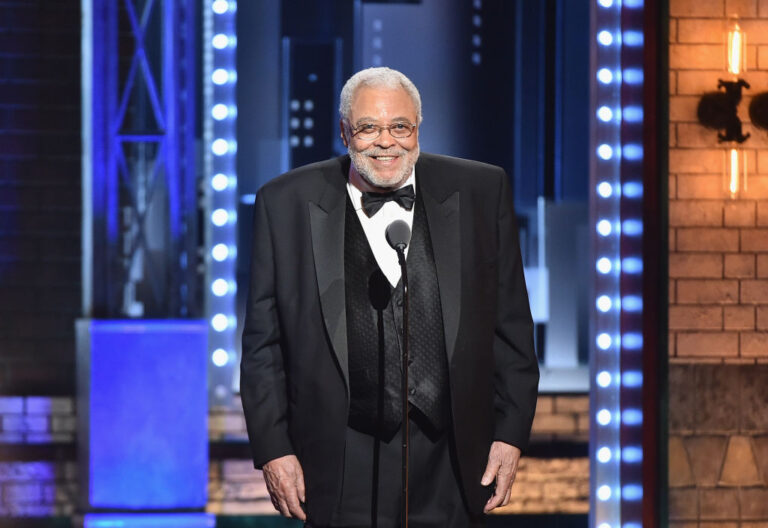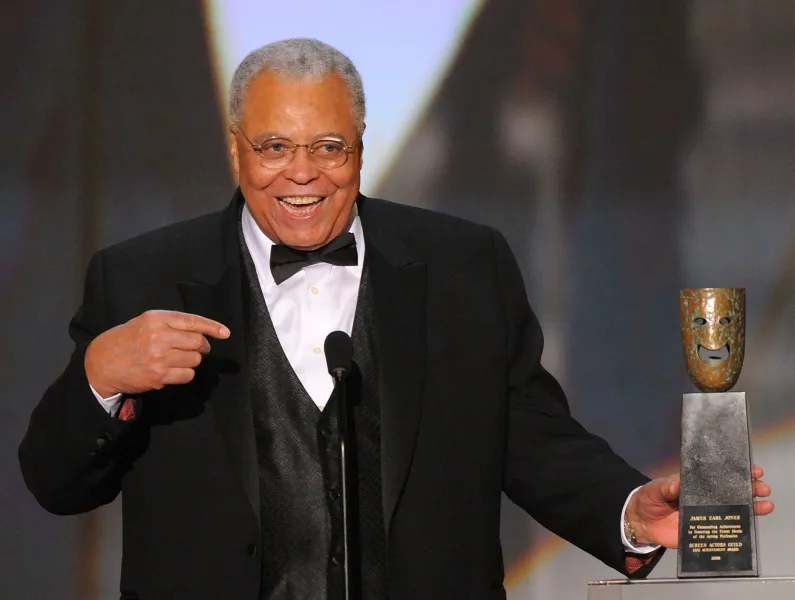
James Earl Jones, the beloved stage and screen actor who lent his iconic, deep voice to Darth Vader in Star Wars and Mufasa in The Lion King, has died at 93.
Regarded as one of the best actors of his generation, Jones’ career spanned Shakespeare to Hollywood hits. He is one of the few actors to have won an Emmy, Grammy, Oscar, Tony Award.
The actor’s death was reported by Deadline, via his representatives at Independent Artist Group.
James Earl Jones was born January 17, 1931 in Arkabutla, Mississippi and raised by his grandparents in Dublin, Michigan. While he would later become one of the most famous voices in the world, he says he suffered from a stutter in his youth.

“I was a stutterer. I couldn’t talk,” Jones recalled in a 1996 interview. “So my first year of school was my first mute year, and then those mute years continued until I got to high school.” A teacher encouraged him to overcome his stutter by reading poetry aloud.
Jones served in the US Army during the Korean War, and after decided to pursue a career in acting. He studied at the American Theatre Wing, working as a janitor to support himself. By the 1960s, Jones was establishing himself as one of his generation’s great Shakespearean actors, playing roles like Othello and King Lear. He also made his film debut in Stanley Kubrick’s classic 1964 comedy Dr. Strangelove, as bombadier Lt. Lothar Zogg.

In 1967, he played a boxer in The Great White Hope, winning the Tony Award for Best Actor in a Play. He reprised the role in the 1970 film version, receiving his first Academy Award nomination.
Amidst all his acclaimed acting work, Jones soon landed his most well-known and iconic role — one where he didn’t even have to appear on set: voicing the villainous Darth Vader in Star Wars. While Vader was played in costume by David Prowse, Jones dubbed over the lines with his own deep bass voice, helping to create one of the most famous characters in movie history.
While Jones originally opted to go uncredited for the role, it has become perhaps his most famous performance. He continued to voice Vader for decades, in the two sequels The Empire Strikes Back and Return of the Jedi, the prequel Revenge of the Sith and the spin-off Rogue One. In 2022, Jones retired from the role, but signed an agreement for his voice to be used in future projects using artificial intelligence and archive recordings.

Jones also provided the voice of another beloved movie character, Mufasa in the 1994 Disney film The Lion King. Jones later reprised the role in the 2019 remake.
Throughout the ’80s and ’90s, Jones appeared in many Hollywood films, including Conan the Barbarian, Coming to America, Field of Dreams, and The Hunt for Red October, Patriot Games and The Sandlot. He also won his second Tony Award, starring in the original production of August Wilson’s Fences.
He received eight Emmy Award nominations for his television work, winning twice in 1991: Outstanding Supporting Actor in a Limited Series or Movie for Heat Wave and Outstanding Lead Actor in a Drama Series for Gabriel’s Fire.

Jones also continued to perform on Broadway: over the past 20 years he starred in revivals of On Golden Pond, Cat on a Hot Tin Roof, Driving Miss Daisy, The Best Man and You Can’t Take it With You.
Jones was the recipient of many awards and honors throughout his acclaimed career. He received an Honorary Academy Award in 2011, making him one of the only people to have won an Emmy, Grammy, Oscar and Tony Award, known as “EGOT.” Broadway’s Cort Theatre was renamed the James Earl Jones Theatre in his honor in 2022.
Rest in peace to the iconic James Earl Jones, one of the greatest actors of our time — please share this
Celine Dion: A Musical Journey of Resilience and Connection

AuthorAvokadoReading4 minViews1.8k.Published by21.05.2024
Celine Dion is a worldwide phenomenon and music superstar whose extraordinary talent and persistent dedication have captured the attention of fans all over the world. Dion was born in Charlemagne, Quebec, Canada, on March 30, 1968, and her talent as a musician was apparent at an early age.
When she was just 13 years old, she released her debut album, breaking into the French-speaking music industry in her early teens. She made her debut in the English-speaking market and rose to fame internationally in the 1990s.

Overcoming Obstacles with Grace
Dion has handled health issues with poise and tenacity throughout her celebrated career. Patulous Eustachian Tube, a disorder affecting the ear, hearing, and voice, was one major obstacle. As a result, multiple Las Vegas shows were postponed in 2018. She had surgery, and at the beginning of 2019, she triumphantly returned to the stage.
Dion’s meticulous attention to her health emphasizes how important it is to strike a balance between one’s own health and the physically and mentally taxing life of touring and performing. For many, her ability to overcome these obstacles has served as an inspiration.
Since health issues might change over time, it’s always a good idea to check recent news or Celine Dion’s official website for the most recent information.

Emotional Bonding and Musical Proficiency
Millions of people have fallen in love with Celine Dion thanks to her incredible accomplishments during her musical career. With the success of her album “The Colour of My Love” and the classic “Titanic” theme song “My Heart Will Go On,” she became well-known.
One of the finest vocalists of all time, Dion is renowned for her intense vocal range and authentic emotional delivery. Her emotional connection to the music makes a lasting impression on listeners, and as a result, she has won multiple Grammy Awards and the Order of Canada.

Outstanding Acts & A Lasting Legacy
Dion constantly puts on amazing live presentations, and her ability to express her emotions via music is especially clear in these settings. She has sold hundreds of millions of CDs, making her one of the best-selling female artists in history.
Her unrelenting devotion to her profession and her unflinching dedication to humanitarian causes have made her a beloved figure in the music industry. Beyond her notoriety, Dion has left a lasting impression on the business and on her fans’ hearts.
Gazing Ahead with Encouragement and Help
Celine Dion shows how resilient she is by canceling all of her concerts for 2023–2024 in spite of her current health issues. Stiff-Person Syndrome is a serious neurological disorder that affects Dion’s ability to sing. In an emotional video, Dion apologized sincerely to her fans and stressed the need of putting her health first before going back on stage.
The August start of Her Courage World Tour was scheduled to take place in Amsterdam and conclude in April of the following year in London’s O2 arena. She had already postponed the tour’s North American leg due to persistent health difficulties.
Despite their disappointment, fans have filled social media with messages of love, sympathy, and support. Their support and affection show how much they still value Dion and how much they think her health should come first. When she’s ready, they look forward to her return.
Celine Dion is one of the best female vocalists of all time thanks to her skill, strong voice, and depth of passion. Her path is absolutely incredible, spanning from her early years in Quebec, Canada, to her ascent to global prominence.
Fans wait patiently and supportively for her return while she manages her present health issues. They extend their warmest wishes till then, stressing how crucial her health is above all else.



Leave a Reply